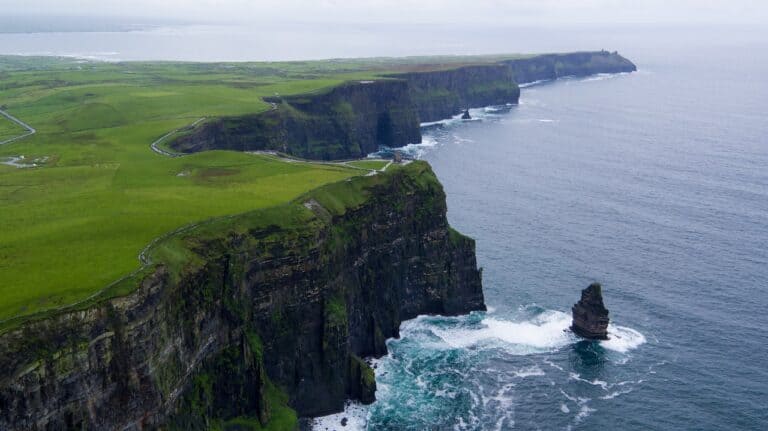Plug For Ireland: What You Need To Know

What is the plug for Ireland? Before you travel, check the information below to make sure your electronic devices are compatible with the outlet type and voltage.
Electrical Summary
Plug Compatibility: Type G
Voltage: 230V (I.S. 401)
Frequency: 50 Hz
Type G

Can North Americans use Electronics in Ireland without an Adapter?
No! North Americans will need an adapter for the outlets and a transformer for the voltage when traveling to Ireland. North Americans device plugs will not work with the outlet types in Ireland. Also, the voltage in Ireland is different from North American voltages.
Can Europeans use Electronics in Ireland without an adapter?
Europeans do not need a transformer when traveling to Ireland. The voltage in Ireland is the same as in Europe. However, most Europeans will need a travel adapter when traveling to Ireland.
What Outlet does Ireland Use?
Type G

Type G plug sockets have three rectangular pins and a grounding pin. These plugs are typically used with devices that have a voltage of 230V.
Is it safe to drink water in Ireland?
We recommend always packing a filtered water bottle when traveling:
Travel Essentials
Be sure to check our list of travel essentials before your trip!
Should I get travel insurance when traveling to Ireland?
It is generally recommended to get travel insurance when traveling to a different country. Travel insurance can provide financial protection and peace of mind in case of unexpected events, such as medical emergencies, trip cancellations, lost or stolen baggage, or other travel-related mishaps.
Travel insurance can cover various expenses related to your trip, such as medical expenses, emergency medical transportation, trip cancellation or interruption, lost or stolen baggage or personal belongings, and other travel-related expenses.
Before purchasing travel insurance, it’s important to carefully review the policy details, including the coverage limits, exclusions, and any applicable deductibles or copays. You should also make sure that the policy covers any activities or destinations that you plan to participate in or visit during your trip.
Travel Summary
The capital city of Dublin is a vibrant city with a rich cultural heritage. Visitors can explore the city’s many landmarks, such as Dublin Castle, Trinity College, and the Guinness Storehouse, which offers a tour of the famous brewery and a pint of the iconic Irish stout.
Ireland is also known for its stunning natural beauty, with rolling green hills, rugged coastline, and stunning lakes and rivers. Visitors can explore the island’s many national parks, such as Killarney National Park and the Wicklow Mountains National Park, which offer miles of hiking trails and stunning vistas.
The island is also rich in history, with ancient ruins, castles, and churches scattered throughout the countryside. Visitors can explore sites such as the ancient passage tombs at Newgrange, the imposing Rock of Cashel, and the Blarney Castle, where they can kiss the famous Blarney Stone and receive the gift of eloquence.
For those looking for outdoor adventure, Ireland offers plenty of options, including hiking, cycling, fishing, and golfing. The island is also a popular destination for water sports, such as surfing, kayaking, and sailing.
Finally, no trip to Ireland would be complete without sampling the island’s delicious cuisine, which features fresh seafood, traditional Irish stews, and hearty pub fare. Visitors can also sample the famous Irish whiskey, with distilleries such as Jameson and Bushmills offering tours and tastings.
Overall, Ireland is a destination that offers a perfect mix of natural beauty, rich history, and warm hospitality. It’s a perfect destination for anyone looking to experience the beauty and charm of the Emerald Isle.
Traveling to another country? Check out our Countries page for more info.